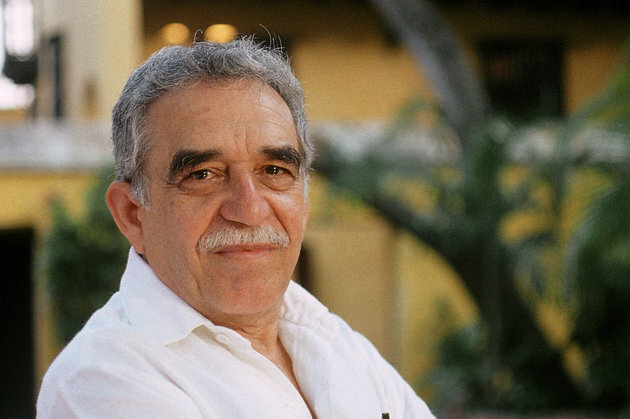Gabriel García Márquez (1927-2014) was a Colombian journalist, writer and screenwriter. Considered one of the greatest writers of the 20th century, he stood out as one of the representatives of Latin American magical realism.
author of One hundred years of Solitude and love in times of anger, he received the Nobel Prize in Literature in 1982 for his body of work.
Biography
Gabriel García Márquez was born in Aracataca, in the department of Madalena, Colombia. His father was a telegraph operator and his mother, a housewife, made an effort to give him a good education.
He spent his early childhood with his grandparents and listened to their stories, real or invented, about civil wars, family customs and legends of the region. In family and friends he would be known by the nickname "Gabo".

He attended the local public school and had his taste for poetry awakened by poetry and literature there. In 1940, he would study in Bogotá, which would be a trauma, not adapting to the cold climate of the city.
In 1947, he would enter the National University, where he intended to study law, but he never graduated, working as an encyclopedia salesman and journalist.
That same year, he published his first short story in the newspaper “the spectator”. Despite financial shortages, García Márquez forged his unique style in literary essays and discussions.
He worked as a columnist for the “El Universal", from Cartagena, where he also became acquainted with young literary men who would form the “Group of Barranquilla”.
This group discussed authors such as William Faukner, Virginia Wolf, Albert Camus, among others, as well as attending parties and brothels in the city.
In the 1950s he had the opportunity to discover post-war Europe. He lives in Rome for almost a year and there he can study cinema, which has always been his second passion, after literature.
Later, in 1958, he would spend a stint in Europe as an international correspondent. He settled in Paris, but traveled through several countries, including Eastern Europe, and reached Moscow.
Back in Colombia, he marries Mercedes Barcha, with whom he would have two children. As a reporter for the Prensa Latina agency, he settled in Havana, where he accompanied the consolidation of the Cuban Revolution.
He became friends with Fidel Castro, which would earn him several criticisms, due to the human rights violations committed by the Cuban regime. In Cuba he would found and teach courses at the International Film and Television School in Havana.
Due to his political positions, García Márquez leaves Colombia permanently and goes to live in Mexico.
In 1967, he published his great literary work in the editorial Sul-Americana, from Buenos Aires, Argentina, “One hundred years of Solitude”.
The book would be a total success and would open the doors to a generation of Latin American authors who would renew the panorama of literature on the continent and the world.

In 1982, he received the Nobel Prize for Literature and took the decision not to accept any literary prize after this one.
“Poets and beggars, musicians and prophets, warriors and scoundrels, all creatures of this indomitable reality, we have asked too little of the imagination, because our crucial problem has been the lack of concrete ways to make our lives more real. This, my friends, is the core of our loneliness.
And if these difficulties, whose essence we share, delay us, it is understandable that the rational talents of this part of the world, exalted in the contemplation of their own culture, find themselves without proper means of to interpret.
It's only natural that they insist on measuring us with the same stick they measure themselves, forgetting that the bad weather of life are not the same for everyone, and that the search for our own identity is as arduous and bloody for us as it was for they.
The interpretation of our reality on patterns that are not ours only serves to make us even more unknown, even less free, even more lonely.”
(Excerpt from the Speech by Gabriel García Marquez upon winning the Nobel Prize)
Even though he was celebrated as one of the greatest Spanish-language writers of the 20th century, Gabo was true to his promise. He would continue writing novels, short stories, plays and scripts for film and television, until he was attacked by an illness that made him lose his memory.
Gabriel García Márquez passed away on April 17, 2014, in Mexico City.
Construction
- The Devil's Burial: The Flock (La Hojarasca) (1955)
- Report of a Castaway (1955)
- Nobody writes to the colonel (1961)
- Big Mom's Funerals (1962)
- Bad time: the poison of dawn (1962)
- One Hundred Years of Solitude (1967)
- Blue Dog Eyes (1974)
- The incredible and sad story of Cândida Erêndira and her soulless grandmother (1978)
- The Autumn of the Patriarch (1975)
- Chronicle of an announced death (1981)
- guava smell (Interview) (1982)
- Love in times of cholera (1985)
- Miguel Littín Clandestino's Adventure in Chile (1986)
- A General in His Maze (1989)
- Twelve Pilgrim Tales (1992)
- Of love and other demons (1994)
- News of a Kidnapping (1996)
- How to Tell a Tale (2001)
- Live to tell (2002)
- Memory of my sad bitches (2004)
- Journalistic Work 1: Caribbean Texts (2005)
- Journalistic Work 2: Andean Texts (2005)
- Journalistic Work 3: From Europe and America (2005)
- Journalistic Work 4: Political Reports (2005)
- Journalistic Work 5: Chronicles, 1961-1984 (2005)
- I didn't come to give a speech (2010)
One hundred years of Solitude
One hundred years of Solitude (Ages of Solitude, original title) was published in 1967 in the period called the “boom” of Latin American literature. This novel is, without a doubt, the most important work of Gabriel García Márquez and also one of the most outstanding in Latin American literature of the 60s.
The novel has characteristics of the magical realism or fantastic, which occurs through the fusion of real and fantastic elements. Through this mechanism, the writer presents a metaphor for the human condition, society and the Latin American reality, while criticizing patterns and asking questions.
Thus, Márquez reveals with great mastery when presenting the story of a family with a touch of fantasy. The experiences and actions of its characters reveal the loneliness present in the encounters and disagreements of life, in addition to themes such as oppression, the forces of nature, social and political problems, violence and, of course, struggles for power.
The story takes place in the quiet village of Macondo, where around 300 people lived. This fictitious space represents, roughly, the reality of Latin America, marked by revolution, struggles and a historical loneliness inherent to our people. Gabo performs this symbolic interpretation of Latin America, uniting myth with reality and politics with literature.
Full of characters, the novel presents the genealogy of the Buendía family, founder of the village of Macondo. From the first generation, we have the couple José Arcadio Buendía and Úrsula Iguarán, who lived for over 100 years. Thus, the writer shows us peculiar and very human characteristics through the psychological profile of his characters through 7 generations.
In the final part of his Nobel Prize speech, the author stressed:
“Face to face with this horrendous reality that may have seemed a mere utopia throughout human existence, we, the inventors of fables, who we believe in anything, we feel inclined to believe that it is not too late to engage in creating utopia opposite.
A new and overwhelming utopia of life, where no one will be able to decide how others will die, where love will prove that truth and happiness will be possible, and where races doomed to a hundred years of solitude will finally and forever have a second chance at Earth.”
Sentences
- Many years later, in front of the firing squad, Colonel Aureliano Buendia would remember that remote afternoon when his father took him to see the ice.
- You are not from anywhere until you have a dead person underground.
- The problem with marriage is that it ends every night after you make love, and you have to rebuild it every morning before breakfast.
- They had lived together long enough to realize that love was love anytime and anywhere, but the denser it became the closer it got to death.
- Everyday life in Latin America shows us that reality is full of extraordinary things.
- I couldn't understand my life, as it is, without the importance that women had in it.
- Tenderness is inherent not in women but in men. Women know that life is very hard.
- Breeds doomed to a hundred years of solitude did not have a second chance on earth.
Films
Several short stories and novels by the Colombian author were brought to movie screens.
- In this pueblo no hay ladrones, by Alberto Isaac (1964)
- the widow of Montiel, by Miguel Littín (1979)
- Eréndira, by Ruy Guerra (1983)
- Chronicle of an announced death, by Francesco Rosi (1987)
- The colonel doesn't have to wait for the scribe, by Arturo Ripstein (1999)
- El amor en los tiempos del cholera, by Mike Newell (2007)
- love and other demons, by Hilda Hidalgo (2009)
- Memories of sad whores, by Henning Carlsen (2012)



